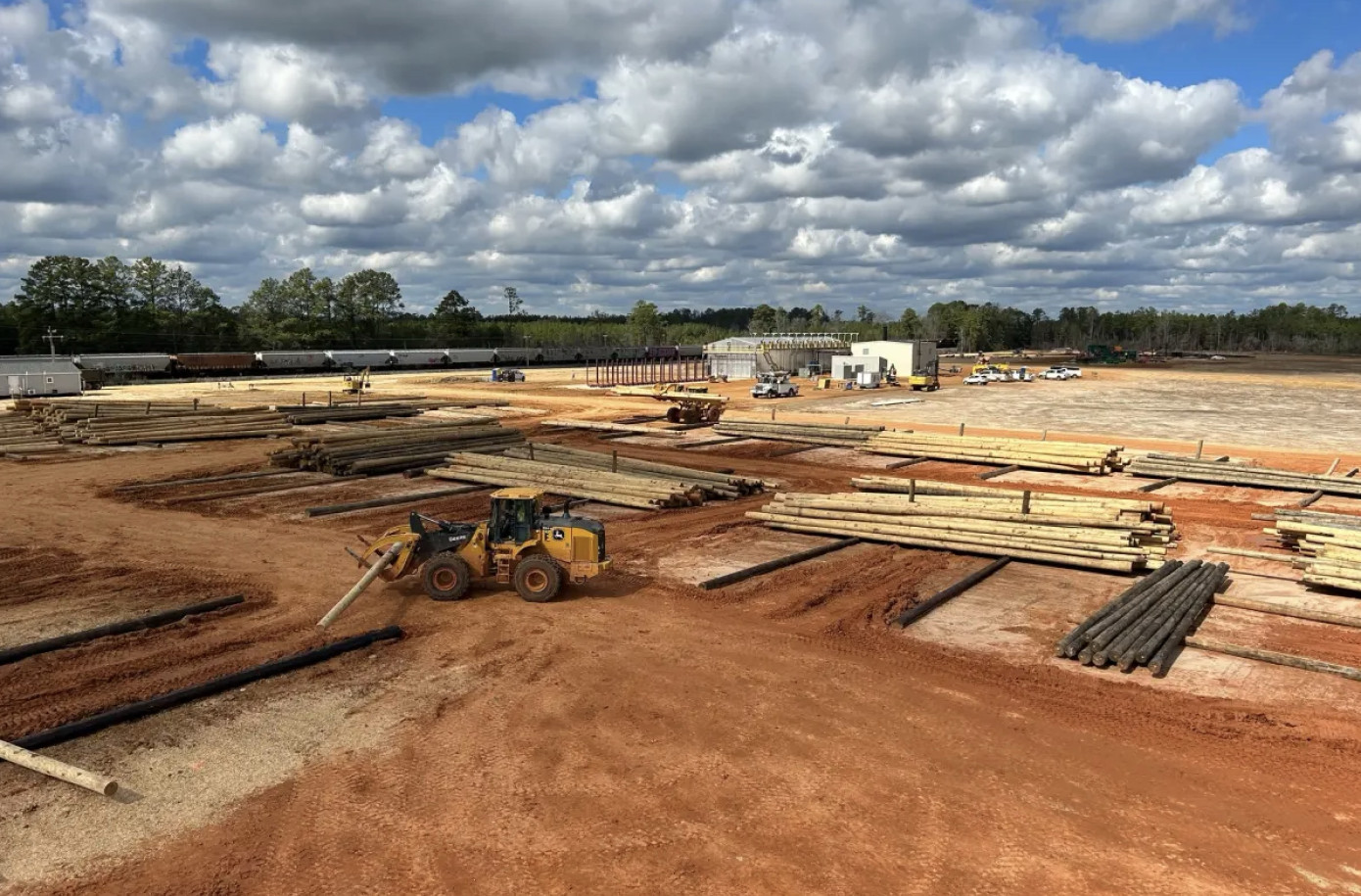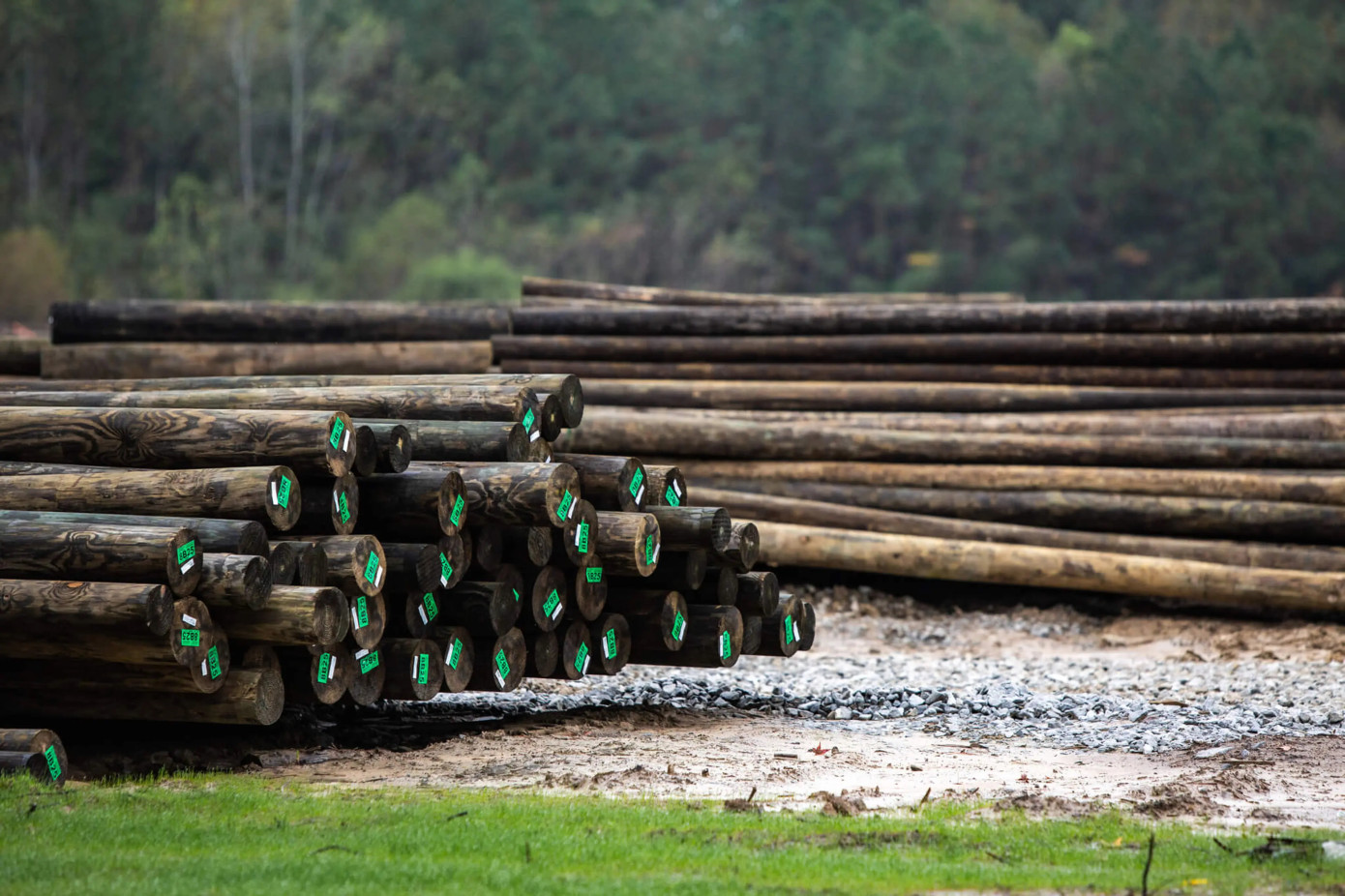Koppers Holdings Inc., a global provider of treated wood products, wood treatment chemicals, and carbon compounds, announced that its subsidiary, Koppers Utility and Industrial Products Inc. (UIP), held a ribbon-cutting ceremony with the Leesville Parish Chamber of Commerce to celebrate the opening of its utility pole peeling and drying facility in Leesville, Louisiana.
In March 2024, the Leesville plant began transforming timber into utility poles, which are then treated at the company's Somerville, Texas, facility and supplied to underserved markets, starting with Texas and extending into the midwestern U.S. Koppers has invested $17 million into the 105-acre Leesville site, creating more than 35 construction jobs and new full-time positions.
"The Leesville facility is a key example of how Koppers continues to optimize our operational footprint," said Koppers President and COO James A. Sullivan. "It has allowed us to reduce costs through plant automation and an improved logistics network, while opening new opportunities in high-potential growth markets as the demand for infrastructure investment in the U.S. only continues to increase."
Bild: The construction site of Koppers' new utility pole facility in Leesville, Louisiana / Koppers Holdings Inc.
Koppers UIP Vice President Jim Healey added, "Leesville's abundance of timber, along with its proximity to our Somerville facility, positions us well to strengthen our supply chain and expand our market presence. We're proud to officially be a part of the Leesville community, which, along with the state of Louisiana, have been great partners in this process, and we thank them for their collaboration and support."
The burgeoning demand for electric cars, solar energy expansion, Washington's rural-broadband initiative, and the fortification of the grid against severe storms has set off a boom in the utility-pole business.
